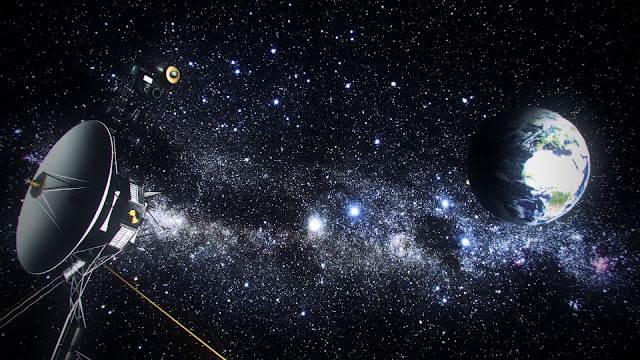Have you ever tried starting a car that’s been sitting unused for a couple of decades? There’s no guarantee that will even respond, let alone actually start up. That makes the feat NASA achieved just a few days ago even more impressive.
The space agency contacted the Voyager 1 spacecraft in interstellar space after an amazing 37 years of inactivity to briefly activate its thrusters.
The Voyager 1 was launched way back in 1977 to observe the outer edges of our solar system. It occasionally communicates with NASA’s Deep Space Network to receive routine commands and beams back data. Sometimes very mysterious data. NASA had to interact with the spacecraft and perform a minor course correction, firing up micro thrusters that hadn’t been activated since 1980.
“With these thrusters that are still functional after 37 years without use, we will be able to extend the life of the Voyager 1 spacecraft by two to three years,” project manager Suzanne Dodd, said in a statement.
Since 2014, scientists have been noticing that the spacecraft’s main propulsion systems are degrading over time. Instead, they decided to use the backup trajectory correction thrusters to shift the probe, which have been lying unused for decades. The tests were successful but, thanks to how far the spacecraft is from Earth, the team didn’t even know it had worked until 19 hours later.
However, even just a couple more years of activity thanks to Plan B means Voyager can send back crucial data we’ve never seen before, from deep space between our star and the nearest neighbor light years away. It’s the farthest probe humanity has, so scientists are frothing at the mouth for its discoveries.
Now, NASA is planning to carry out the same tests with another spacecraft, the Voyager 2, another spacecraft moving between stars. If it works, who knows what else we may uncover in the years to come?
